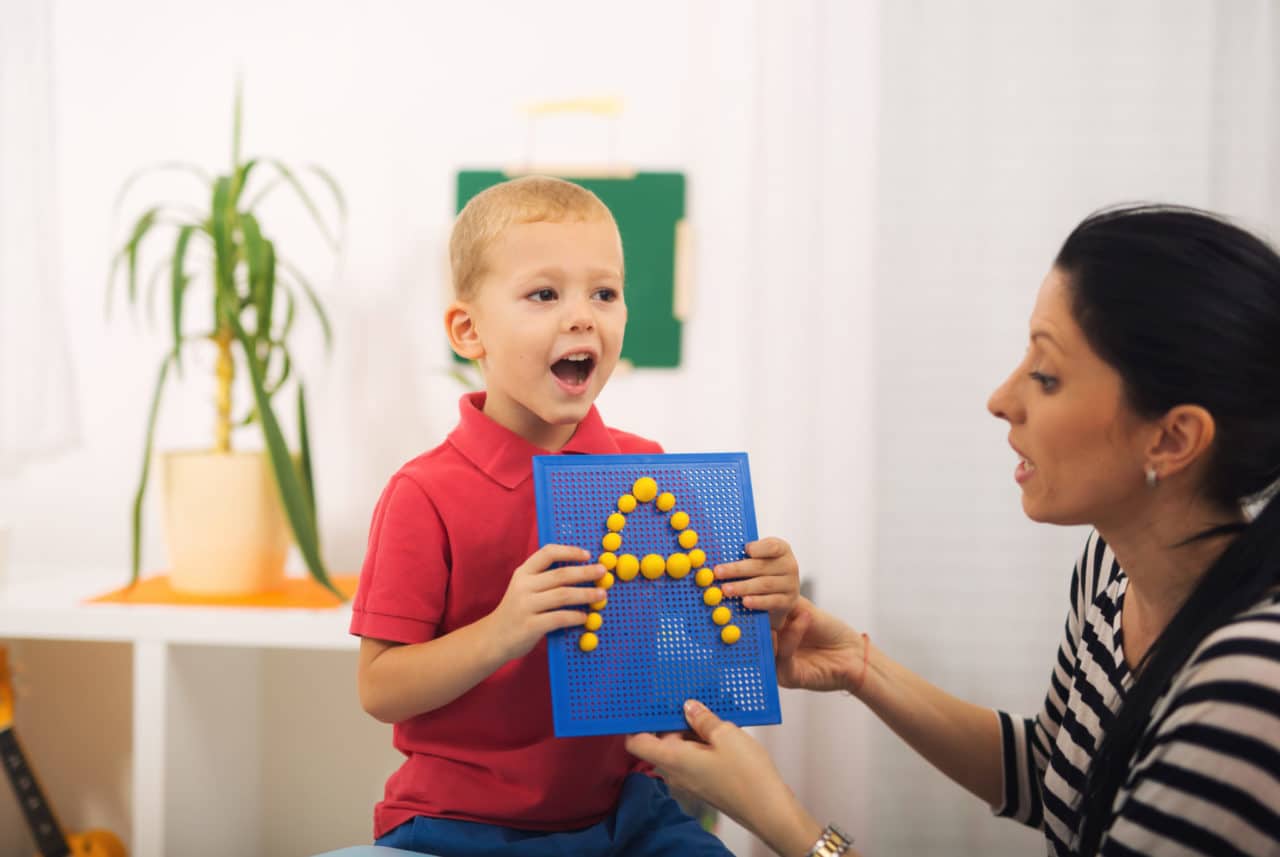A speech sound disorder occurs when a person has difficulty producing speech sounds, affecting his or her ability to communicate. Children often make mistakes as their vocabulary grows, but a speech sound disorder occurs past the age at which they are expected to know how to make the correct sounds.
Types of Speech Sound Disorders
There are two main types of speech sound disorders: articulation disorders and phonological disorders.
Articulation disorders involve problems making sounds. Sounds may be substituted, omitted, added or distorted. This results in speech that is difficult for others to understand. Common problems include substituting the letter “r” with “w” (“wabbit” for “rabbit”), shortening words or speaking with a lisp.
Phonological disorders involve patterns of sound errors. Mistakes are made with entire groups of words; for instance, sounds made in the back of the mouth may be substituted with sounds made in the front of the mouth, e.g. substituting the letter “d” for “g” (“got” for “dot”). People with phonological disorders are often able to hear these errors when others speak, without picking up on their own mistakes.
Causes & Treatment

Many times, the cause of speech sound disorders is unknown. Children may not learn how to correctly pronounce certain sounds, and this can carry over into adulthood. Other times, the cause is physical in nature. Developmental disorders, genetic syndromes, neurological disorders, hearing loss and other illnesses may all contribute to speech sound disorders.
A speech-language pathologist (SLP) will thoroughly evaluate a patient to determine the cause of the disorder and recommend a course of treatment. He or she will work closely with the individual to improve communication skills.
Speech Delay
As children grow, there are certain milestones parents look forward to, such as crawling, walking and speaking. By their first birthday, most children know a word or two; at 18 months, their vocabulary should consist of five to 20 words and include simple two-word sentences. But these are rough guidelines. Every child progresses at a different pace.
Approximately one out of every four children experiences a speech delay, and most eventually catch up without any sort of intervention.
Still, it’s best to bring up any concerns with your child’s doctor. If there is a language disorder or developmental problem, early treatment is key to preventing learning problems down the road.
What Are the Reasons for a Speech Delay?
A variety of factors can lead to delayed speech and language skills. These include:
- Heredity.
- Hearing loss.
- Oral anatomy (problems with the tongue or soft palate).
- Dysarthria (a disorder involving the muscles that control speech).
- Exposure to multiple languages.
- Neurological disorders such as autism, cerebral palsy and muscular dystrophy.
- Learning disabilities.
- Auditory processing disorders.
- Premature birth.
- Environmental deprivation.
If your child’s doctor cannot rule out a speech delay, a speech-language pathologist should be consulted for a full evaluation. This involves a series of tests that will be used to assess your child’s receptive language and expressive language skills, sound development, speech clarity and oral-motor skills. Speech therapy may be recommended to help your child develop the skills necessary for effective communication.
What Can Parents Do?
Both heredity and environment play a role in speech development. As a parent, there are steps you can take to assist your child with speech development. Communicate often (talk and sing), encourage verbal interaction whenever possible and read to your child starting at a young age.
Call the Center for Hearing & Speech at (314) 968-4710 for more information or to schedule an appointment.